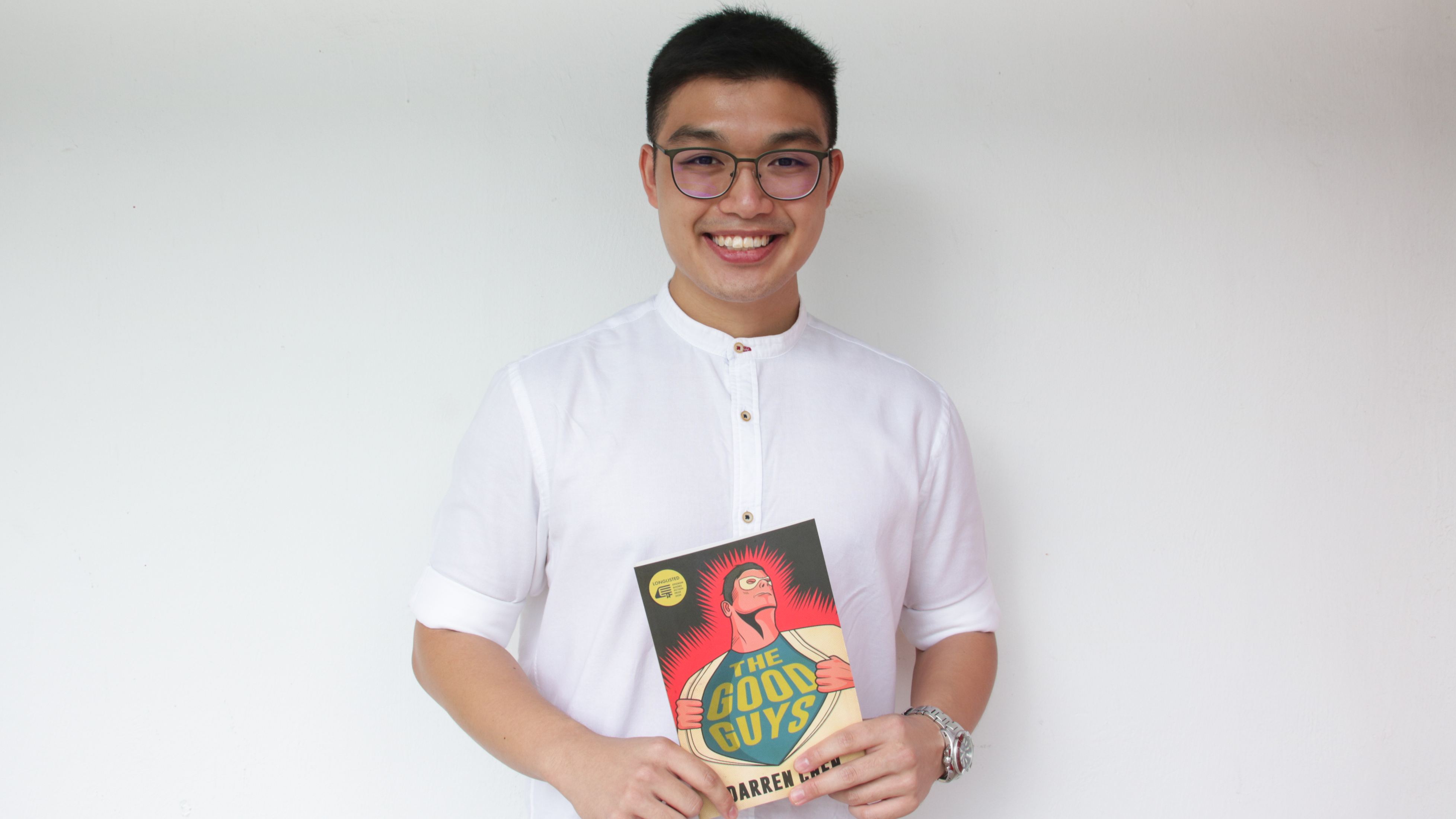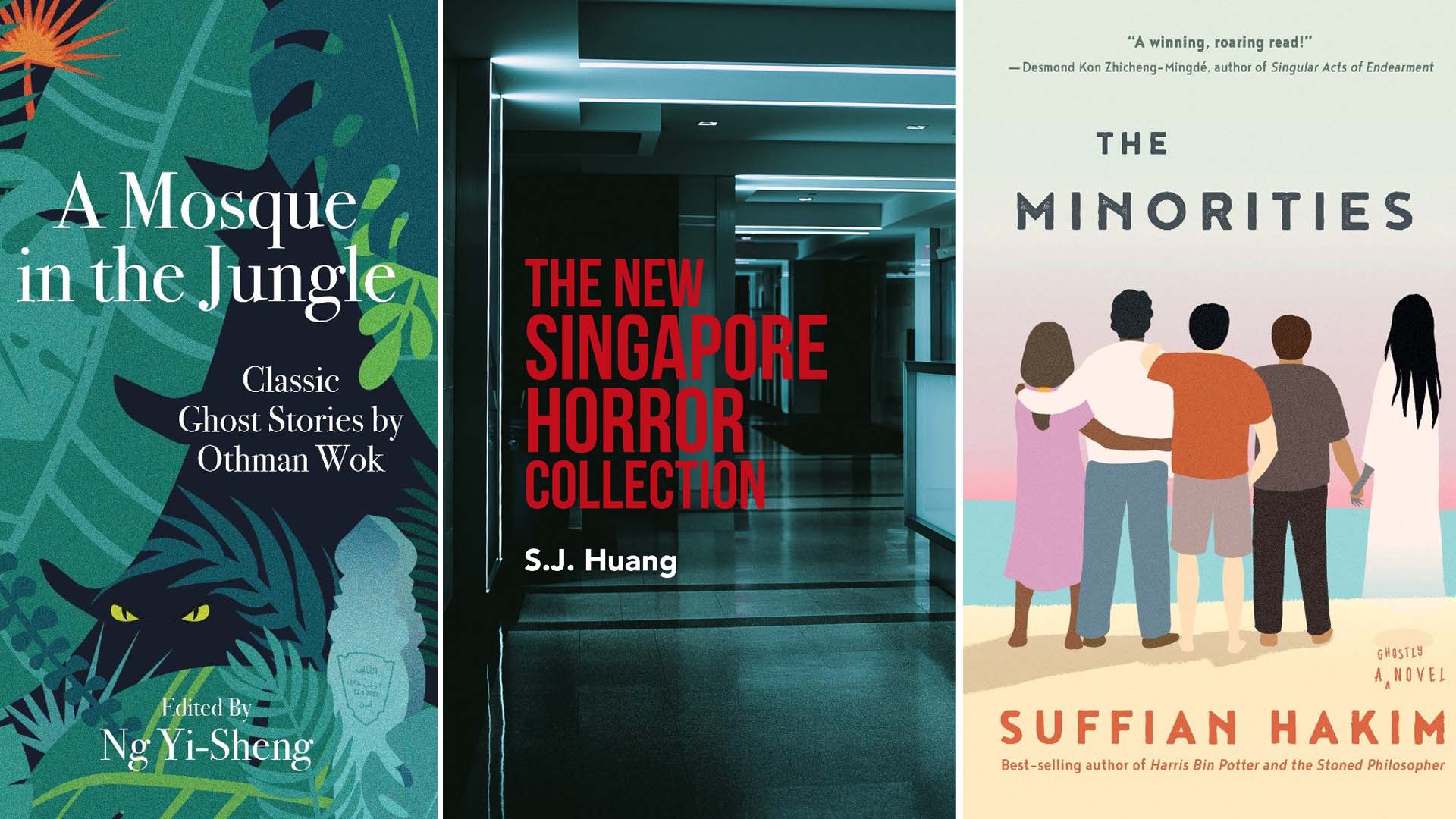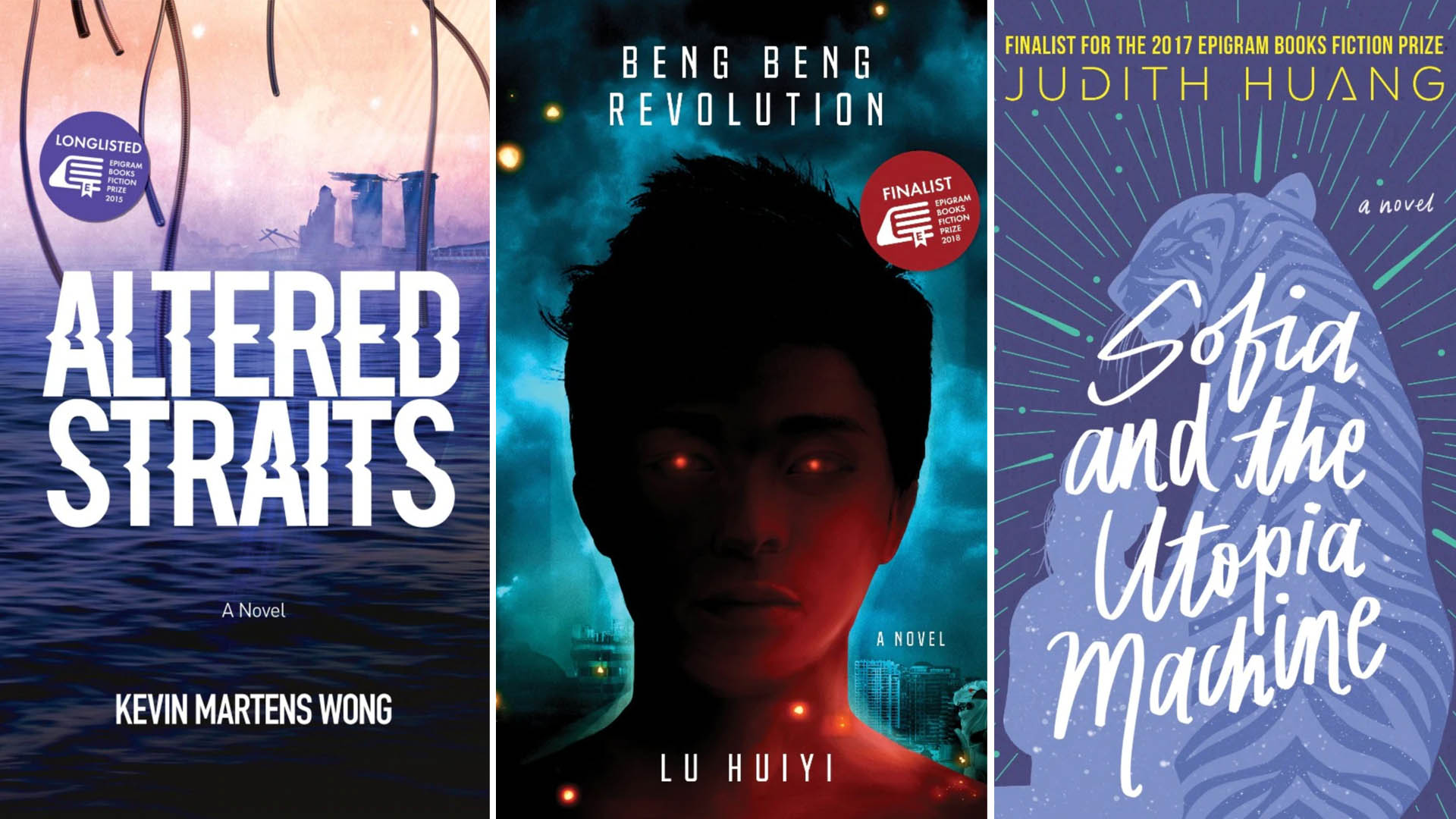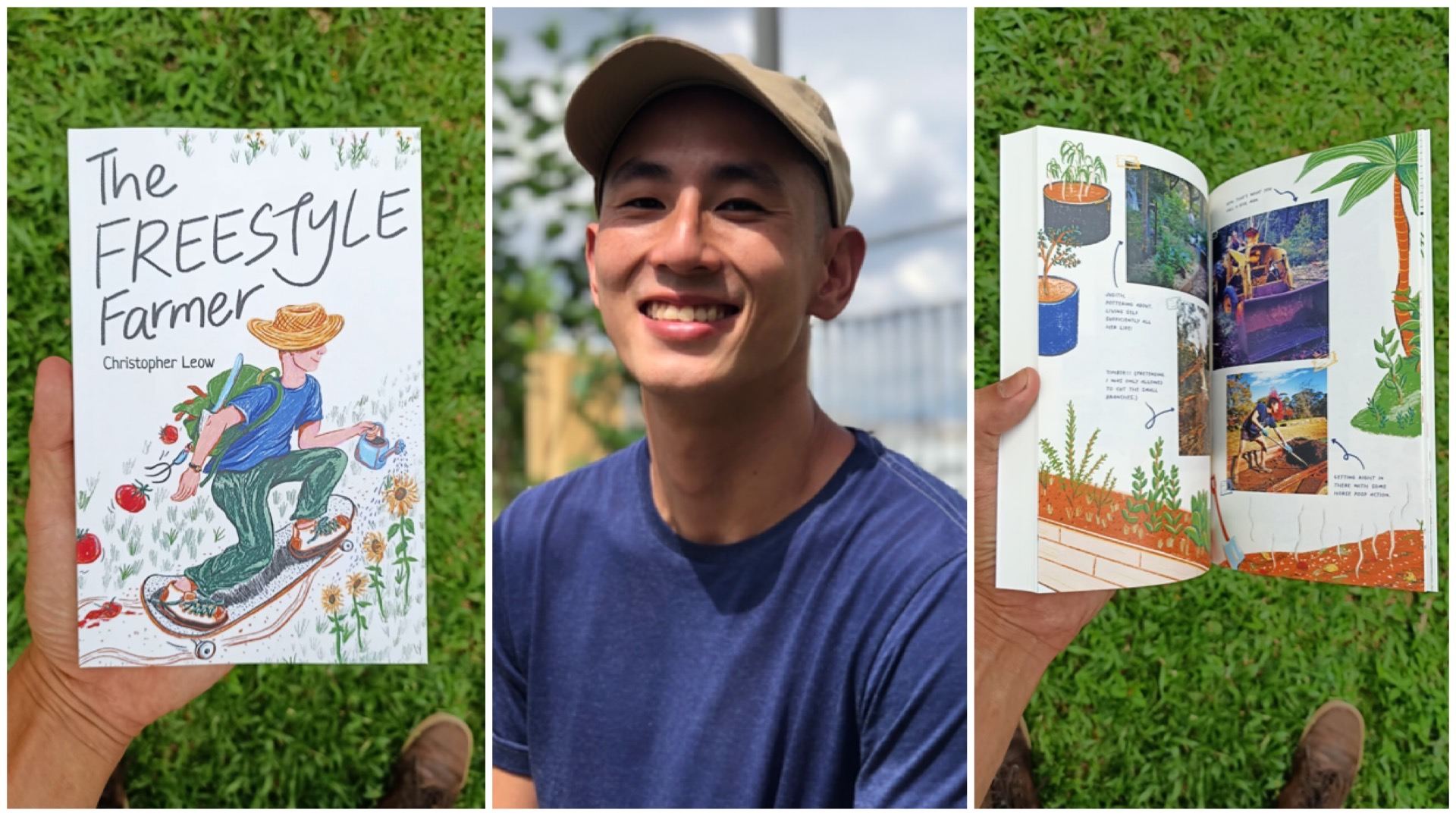Singlit Spotlight: A Superhero Story That Swoops In On Mental Health, Loss, Trauma
As a student in Singapore, one is often overwhelmed by the rigours of academic life, especially at university.
To de-stress, Darren Chen, a third-year undergraduate at the National University of Singapore’s Faculty of Law, turned to writing. The result: "The Good Guys", a full-length superhero novel that is longlisted for the 2020 Epigram Books Fiction Prize.
Normally, superheroes swoop in to save the day and the public can count on them in times of trouble. However, this isn’t your ordinary superhero story – in this one, it is the heroes who need saving.
Furthermore, "The Good Guys" isn’t merely a story about superheroes and good versus evil. It also looks at issues relating to stress and mental health.
The plot: Set in Singapore in the not-so-distant future, the events mainly take place in The Vault. Located far beneath the Singapore General Hospital, The Vault is a facility dedicated specifically for recuperating superheroes who need a little time-out from the madding crowd. Small-time hero Landslide has checked in for some much-need recuperation, but the peace is quickly turned upside down when someone is killed and The Vault goes into lockdown.
Meanwhile, we swoop in and speak to Darren about his valiant venture.
In between your studies and personal life, how did you manage to find time to become a young novelist? And how have you improved your writing process since then?
So, I had the lightbulb-moment of wanting to write a book during my downtime in my first academic year of university, specifically during the first semester. Once that decision was made, I spent the rest of the semester planning out the details of the story (from the characters to the plot beats) on the back of a piece of cardboard whenever I was free.
The actual process of writing the first draft took place in the space of about two months in the second semester - any time I was unoccupied after or between (and dare I say during) classes went into putting actual words down or thinking of where to go next with the story.
After I finished the draft I let it lie fallow till after exams before I looked at it again and began editing it in time for the Epigram Books Fiction Prize (EBFP) 2020 submission deadline.
I've since streamlined this process quite a bit for later projects (like having daily quotas for my word count) in order to be more efficient with my time, but going through it the first time and understanding the rigours of writing a coherent novel was illuminating.
Waseh, your debut novel and it’s already been longlisted for the prestigious EBFP! What were your expectations?
It was a welcome surprise! I was not expecting it to get on the longlist given the quality of competition that the EBFP is known to attract, neither was I confident that a superhero murder-mystery was something that the judging panel would look favourably upon.
I still remember looking over the longlist with a friend when the news broke. I remember seeing everyone on the list - from PhD holders to published poets and authors - and laughing because I was the obvious odd-one-out.
Batman was your personal superhero growing up. Has that changed after writing this novel?
If you asked me this question before I wrote "The Good Guys", my answer would probably have been Batman - he's cool and he's got a very long and storied history. There's enough room in his character for writers to humanise him and really explore the hurt that drives him.
There's also room to develop amazingly meta and boundary-pushing stories with a character as well-established as the Batman - Neil Gaiman's "Whatever Happened To the Caped Crusader?" comes to mind.
But very frankly, 2021 Darren might give that title to Thor? Which can feel surprising given his portrayal on the silver screen. I think particular attention ought to be paid to Jason Aaron's run on Thor - I think the stories he was trying to tell about hubris and the responsibilities of godhood are distinctly profound.
It also goes without saying that the artists supporting him (whether Esad Ribic or Mike del Mundo) are craftsmen par excellence.
It’s a cool book with cooler characters. Why did you choose the theme of mental health in particular and did the pandemic bring about personal challenges?
I want to first say that I started with the story geared towards to mental health, but it soon broadened because I'm not a mental health professional and I didn't feel like I possessed sufficient knowledge about that sphere to speak authoritatively on the subject.
It evolved on its own terms into a story more generally about loss and trauma and hurt, all of which are things I've been personally acquainted with and that I think have touched many people in different ways.
But mental health was that starting point simply because being a student is a stressful thing, more so for law students - we're inundated with all sorts of pressures from different courses and demands both in and out of the classroom.
That's not even factoring in social pressures - from friends or from family. These are all the invisible things that can weigh heavily on us, and even though we're all aware of it it's not something that's often meaningfully addressed in a public space.
It seemed apt to me that the outlet for me - writing - should first be turned towards tackling the same pressures that necessitated that outlet in the first place. I think that's why I settled on that as a starting point.
As to the pandemic, it was tough transitioning to online learning, especially in a course as technical and dense as the law - it felt immensely difficult for me to keep pace with my academics.
Going through the circuit breaker and being cooped up in the confines of my home was also tough and felt almost claustrophobic. I think it exposed to me how social we are and how much effort must go into keeping those social links alive in a time where we were forced to stay apart from one another.
In spite of all that effort, it was a really lonely time, and I felt that there were instances where that nearly got to me. I'm just glad that it's largely over.
Apart from being inspired by comic books, how did your time in university motivate you to raise awareness about dealing with mental health?
It was a confluence of different things. I was reading comic books in my downtime during that first semester since they're broken into discrete sections and thus easy to digest.
At some point I came across Tom King's DC series "Heroes in Crisis", which dealt with superheroes and trauma and therapy in a secluded rehabilitation centre. It was a fascinating premise to me but I felt I would prefer a different direction to the story, and so these are all familiar core elements of the story I would draw on in my later writing. Anchor points, if you will.
Other than that series and a general geeky love for comics and their tropes and clichés, it was also a convenient point in time that the Faculty of Law was starting to have conversations about mental health on-campus (and, I suppose, in NUS at large) while I was dealing with personal issues.
These all sort of shade into each other, and at the end of that, I had a story that I wanted to tell (about hurt, loss, and trauma!) framed in the language of the familiar (superhero capers) around a structure I could build off of (a murder mystery à la Tom King). And now we're here.
Being a young novelist in Singapore comes with its challenges. How have you overcome them and with what support?
I think the biggest challenge is time? This isn't something I'm doing full-time, so being able to set aside or otherwise make time for writing is the biggest struggle especially in light of academic and extra-curricular commitments.
In line with that, I think the biggest advantage for me was never actually wanting for support when it came to the process of writing the novel since it took place in the space of that free time and on my own terms. Editing the novel, however, was different story - to that I'm immensely grateful (and indebted) to the many friends from the Law Faculty and the Navy who were willing to lend their time to help critique and suggest edits for the story in its later iterations.
During your time carrying out the duties of every Singaporean Son, did national service aid your writing journey in any way?
When I was in NS, I was sent to the Changi Defence Squadron (CDS) after commissioning from the Midshipman Wing of Officer Cadet School. I've actually spoken to another young novelist Teo Xue Shen (who wrote two books during his time in NS on his phone), and his journey as a writer within the military was quite fascinating. However, my novel doesn't take its roots from my time with the Navy. I was wearing too many hats during that period to map out the story.
That being said, the many experiences I had with the Navy and CDS were the inspiration for other projects that I'm still working on. I did take brief notes on certain characters and scenes during my time in uniform, and those have translated quite nicely onto the page.
Any words of encouragement to budding novelists?
The hardest part is always going to be hammering out that first draft - but it can be done! Be consistent (because inspiration is fickle and fleeting) and less self-conscious (because the first draft isn't there to be perfect, it is there to be written).
When you are done you can be satisfied knowing that you've gone further than most people will in their lives! And then you can worry about editing and getting published, but that's another story for another day.
Maybe try for the EBFP?
The Good Guys is available on Epigram.
For the latest updates on Wonderwall.sg, be sure to follow us on Facebook and Instagram. If you have a story idea for us, email us at [email protected].











